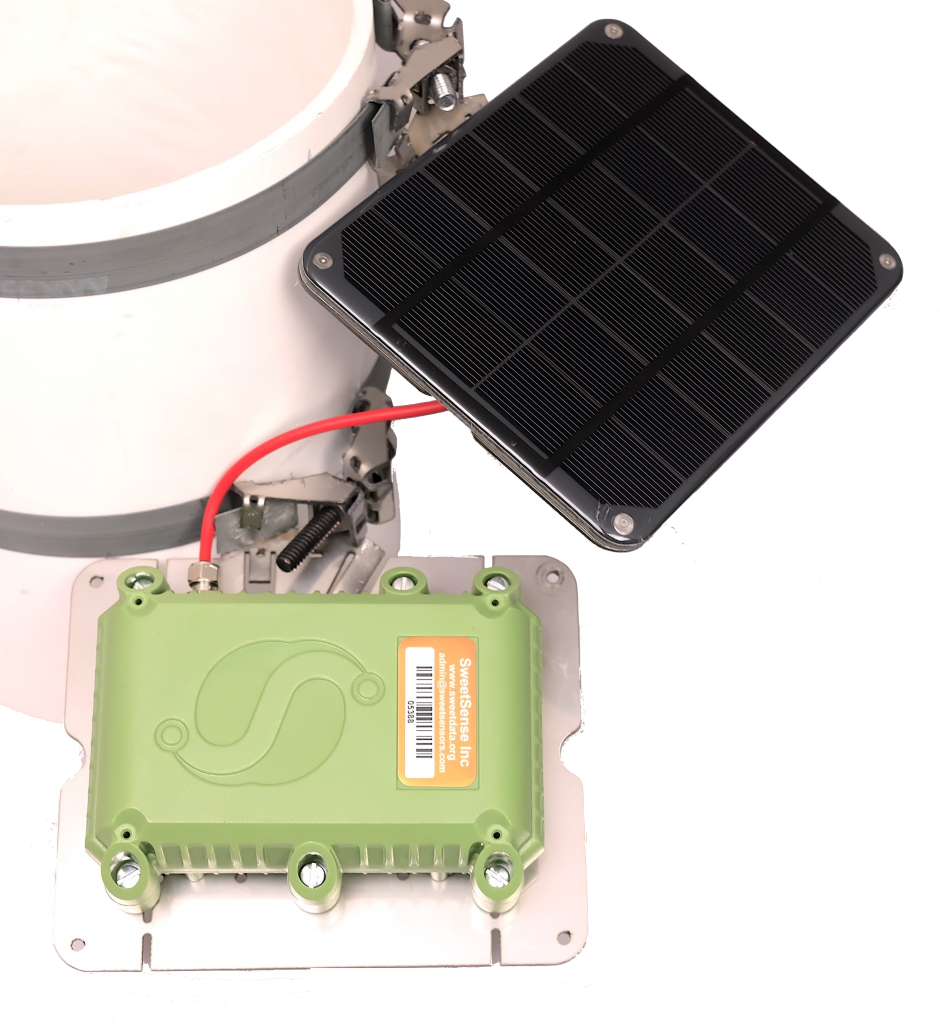Portland Start-up Takes Part in Coalition to Bring Water to Rural Kenya

SweetSense SAT, a product of SweetSense Inc is shown. The product is currently being used to monitor water pipe functionality in Kenya. (Photo courtesy of SweetSense.)
A start-up company out of Portland State University is harnessing commercially available sensor technology to make a difference in health initiatives for developing nations.
SweetSense Inc., a spin-out from the university’s Sustainable Water, Energy and Environmental Technologies (SWEET) Laboratory, manufactures and distributes products developed in the laboratory to the global health community.
“The SWEET lab has developed a custom data collection and analytics platform that can be applied to improve rural international development. SweetSense is working to get the products into the hands of the people who need them, where they can make a real difference” said Dexter Gauntlett, the business development director for SweetSense.
SweetSense combines a variety of sensor technologies with cellular and satellite technology for data reporting. Those products are designed to be installed in community- and household-level fixtures like borehole water pumps, latrines and hand-washing stations. The collected data is transmitted to the Sweet Data online collection tool that can be downloaded from any browser with a protected login.
One area where the products are already making a difference is Kenya.
The company is part of a 21-organization public-private partnership dedicated to increasing the amount of citizens in Kenya that have regular access to water, and improving water management. Known as the Kenya Resilient Arid Lands Partnership for Integrated Development or Kenya RAPID, the effort is led by the Millennium Water Alliance and the United States Agency of International Development. It includes partners across many industries.
Kenya is a very dry, drought vulnerable area that makes farming and raising livestock for sustainability very difficult. Research has shown that only 37 percent of the population has access to readily available water. Kenya RAPID wants to increase that to at least 50 percent. To do that, the group is focusing on five counties, Garissa, Isiolo, Marsabit, Turkana and Wajir.
The effort has many moving parts. SweetSense is working to improve water management through the use of data.
“The emphasis of the past 30 years in the development sector has been installing as many water pumps as possible in the area because it was believed that more pumps meant more water,” said Gauntlett. “But 50 percent of the pumps fail in the first few years.”
In the past when a pump failed, officials were only made aware of it through citizen complaints or through employee spot checks that were performed at lengthy intervals. In some instances, a pump could be down for a year before receiving maintenance.
SweetSense and the Kenya RAPID team are using the company’s sensor technology to revolutionize and speed up this process and drastically decrease the days that a pump is down.
“We believe that it’s cost effective to invest in systems that use remote sensor communication and alert a technician immediately when the pump needs serviced,” said Gauntlett. “Area officials are able to monitor water pumps from their desks, they no longer need to drive long distances to check the pumps. They can fix pumps before they completely malfunction and also make informed decisions on the maintenance scheduling.”
The technology is already making an impact.
“SweetSense sensors have been very useful in providing real-time information on functionality in remote locations of northern Kenya,” said Doris Kaberia, chief of party and Kenya programs director from Millennium Water Alliance.
In addition to Kenya, SweetSense has deployed their products in India, Nepal, Indonesia, the Philippines, Rwanda, Kenya, Uganda, Ethiopia, Haiti and other countries. More than 1,000 of its sensors have been installed worldwide.
Top image: SweetSense SAT, a product of SweetSense Inc is shown. The product is currently being used to monitor water pipe functionality in Kenya. (Photo courtesy of SweetSense.)





0 comments